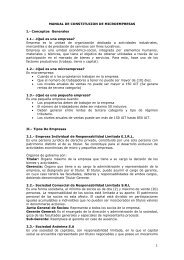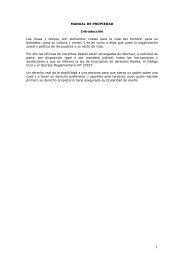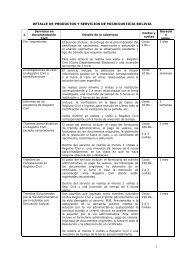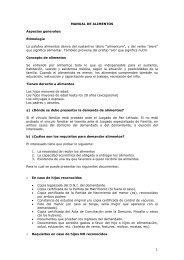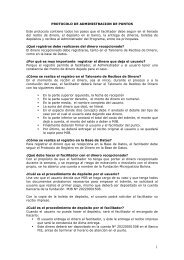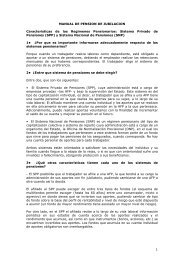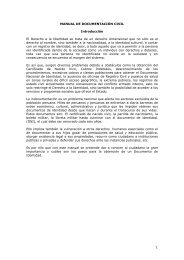ICISS report - International Coalition for the Responsibility to Protect
ICISS report - International Coalition for the Responsibility to Protect
ICISS report - International Coalition for the Responsibility to Protect
Create successful ePaper yourself
Turn your PDF publications into a flip-book with our unique Google optimized e-Paper software.
The <strong>Responsibility</strong> <strong>to</strong> <strong>Protect</strong> 26<br />
and scientific, professional and educational communities all have a role <strong>to</strong> play. The capacity<br />
<strong>to</strong> conduct preventive diplomacy ultimately relies on <strong>the</strong> international ability <strong>to</strong> coordinate<br />
multilateral initiatives, and identify logical divisions of labour. The mention of “coordination”<br />
normally makes eyes glaze, but <strong>the</strong> issue is one of perennial concern. The number<br />
of coordinating committees and meetings is large, but <strong>the</strong>y do not necessarily improve<br />
coordination. It is obvious that states and non-state organizations often have varying interests<br />
and agendas; and in zones of potentially catastrophic conflict where external ac<strong>to</strong>rs have<br />
significant interests (and usually more than a few rivalries), coordination of preventive actions<br />
can be especially difficult. This provides easy ammunition <strong>for</strong> indigenous ac<strong>to</strong>rs <strong>to</strong> exploit<br />
divisions among external players. When this reality is combined with <strong>the</strong> need <strong>to</strong> coordinate<br />
and create divisions of labour across agencies and <strong>to</strong> be flexible in sequencing preventive<br />
measures over time, <strong>the</strong> prospects <strong>for</strong> strategic coherence are <strong>for</strong>midable.<br />
3.37 It is important <strong>to</strong> have an operational strategy, of <strong>the</strong> kind that has been proposed by<br />
<strong>the</strong> Carnegie Commission among o<strong>the</strong>rs, <strong>for</strong> direct prevention ef<strong>for</strong>ts. It is desirable <strong>to</strong> have<br />
a lead player <strong>to</strong> manage multi-ac<strong>to</strong>r prevention, and <strong>to</strong> avoid <strong>the</strong> prospect of prevention<br />
by committee and all <strong>the</strong> strategic incoherence that implies. It is important <strong>to</strong> be able <strong>to</strong><br />
integrate quick-impact development projects in<strong>to</strong> diplomatic initiatives. It would be highly<br />
desirable <strong>to</strong> have available a pool of unrestricted development funds <strong>for</strong> use by a third party<br />
at very short notice – a capacity that does not presently exist within <strong>the</strong> UN, and has long<br />
been a major constraint on <strong>the</strong> ability of media<strong>to</strong>rs <strong>to</strong> “sweeten <strong>the</strong> pot” <strong>for</strong> parties <strong>to</strong> a<br />
dispute and <strong>to</strong> engage in even rudimentary confidence building measures.<br />
3.38 The media have a particularly important role in conflict prevention, in particular in<br />
alerting policy makers – and <strong>the</strong> public opinion that influences <strong>the</strong>m – <strong>to</strong> <strong>the</strong> catastrophic<br />
consequences that so often flow from no action being taken. More immediate and more<br />
graphic s<strong>to</strong>ries will always tend <strong>to</strong> take precedence, but <strong>the</strong>re is much more that can and<br />
should be done <strong>to</strong> identify emerging issues, explain <strong>the</strong> human risks associated with <strong>the</strong>m,<br />
and prod decision makers in<strong>to</strong> appropriate action.<br />
3.39 Conflict prevention must be integrated in<strong>to</strong> policies, planning and programmes at<br />
<strong>the</strong> national, regional and international levels. Member states should be asked <strong>to</strong> give <strong>the</strong><br />
Secretary-General regular <strong>report</strong>s and updates on capacities, capabilities and current<br />
practices designed <strong>to</strong> prevent conflict – at <strong>the</strong> national level and as part of a contribution <strong>to</strong><br />
global conflict prevention ef<strong>for</strong>ts. Regional and sub-regional organizations should also<br />
contribute <strong>the</strong>ir experiences and plans <strong>to</strong> this global ef<strong>for</strong>t – making <strong>the</strong> UN <strong>the</strong> reposi<strong>to</strong>ry<br />
of best practice <strong>to</strong>ols and strategies. The effective prevention of conflict requires, in<br />
particular, that development, <strong>for</strong>eign policy, finance and defence ministry dimensions of<br />
conflict prevention ef<strong>for</strong>ts be drawn <strong>to</strong>ge<strong>the</strong>r. Both donors and recipients should begin <strong>to</strong><br />
structure <strong>the</strong>ir approach <strong>to</strong> conflict prevention in a way that ensures coherence, continuity<br />
of ef<strong>for</strong>t and real impact.<br />
3.40 The Commission strongly believes that it is critical that more resources, more energy,<br />
more competence and more commitment be put in<strong>to</strong> prevention. Time and time again<br />
attention has been drawn <strong>to</strong> <strong>the</strong> need <strong>for</strong> stronger and more effective prevention ef<strong>for</strong>ts –<br />
most recently by <strong>the</strong> Secretary-General in his well received and much debated recent <strong>report</strong><br />
<strong>to</strong> <strong>the</strong> General Assembly and Security Council – yet <strong>the</strong> tangible commitment <strong>to</strong> prevention<br />
remains weak. Moving from talk <strong>to</strong> action means greater willingness on <strong>the</strong> part of local and<br />
national communities <strong>to</strong> take <strong>the</strong> kinds of steps that are required if conflict is <strong>to</strong> be avoided,<br />
<strong>to</strong>ge<strong>the</strong>r with a greater willingness by external ac<strong>to</strong>rs <strong>to</strong> ensure that <strong>the</strong>ir actions do not serve<br />
<strong>to</strong> make a particular situation worse. It means more active ef<strong>for</strong>ts at <strong>the</strong> sub-regional and<br />
regional levels <strong>for</strong> conflict prevention, and much greater support <strong>for</strong> <strong>the</strong>se ef<strong>for</strong>ts at all



